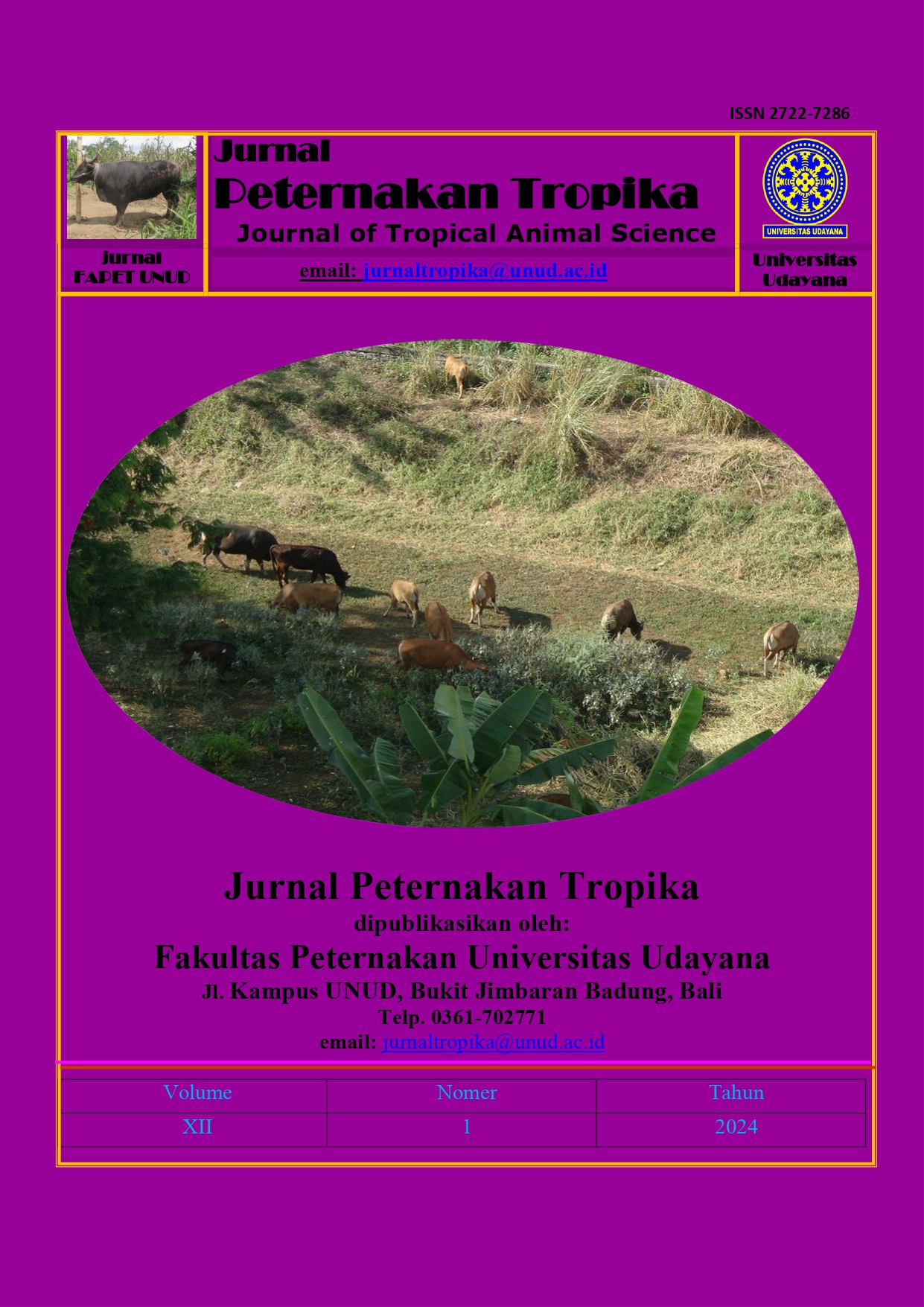THE EFFECT OF STORAGE TIME ON THE QUALITY OF EGGS SOLD BY CAR TRADERS
Abstract
This study aims to provide information to consumers about the effect of storage duration on the quality of purebred chicken eggs sold by car traders. The research was conducted at the Poultry Laboratory, Faculty of Animal Husbandry, Udayana University, for 4 weeks. The study used a completely randomized design (CRD), with 4 treatments and 4 replicates each consisting of 10 eggs, a total of 160 eggs were used. The treatment of purebred chicken eggs consisted of: P0: Eggs stored for 0 days; P1: Eggs stored for 7 days; P2: Eggs stored for 14 days; P3: Eggs stored for 21 days. The observed variables include egg weight, yolk index, egg white index, egg shell thickness, egg pH, egg Haugh unit. The results showed that the length of storage had a significant effect (P <0.05) on egg pH, while the weight of eggs, yolk index, egg white index, eggshell thickness and Haugh unit did not show a significant difference (P>0.05). The results of the study can be concluded that the storage of purebred chicken eggs sold by motorized traders stored for up to 14, and 21 days still has good quality and increases the pH of the eggs but is still within normal limits and the eggs still have good haugh unit quality, namely grade AA.






